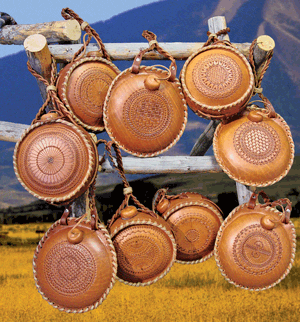On this second anniversary of the Indonesian Tsunami, the principles of resilience have a poignant significance. While those rebuilding lives and countries commemorated the event with religious services, memorials, events of state and moments of silence, I spent this day with a small group of medical students. These students came to Central Florida to donate their time and holiday vacation to help severely disabled children and their families.
Medical school is a grueling experience. These students receive little or no time off during the four years while spending 50 to 60 hours per week in class and clinic. Without any conscious realization, these medical students found a way to rebuild their own resilience.
The greatest statement of resilience that I have heard in my years of nutrition counseling, medicine, or disaster for response and recovery are drawn from the daily prayer of Alcoholics Anonymous:
“Lord, grant me the strength to change the things I can change;
(physical resilience)
“The serenity to accept the things I cannot change;
(relationship resilience and emotional resilience).
“And, the wisdom to know the difference.”
(spiritual resilience)
This simple prayer, or wise saying if you prefer, is not only itself a source of spiritual resilience, but the embodiment of the four canteens.
Once we have filled our four canteens of resilience: Physical, relationship, emotional and spiritual we are ready to deal with life’s adversities, but it is how we draw from our canteens of resilience that determine whether we will suffer a disaster (our needs will exceed our resources) or that we will actually remain resilient (our resources will exceed our needs).
Although I have heard this prayer many times during my over quarter century of dealing with clients, patients and corporations, it was never brought home better than as I watched my own daughter go through her personal recovery.
Tiffany had been hospitalized with her own health challenge and at a time when I was deployed to a disaster scene. Ordinarily I would have been released to go back home, however just the day before my daughter was hospitalized, the only other physician on the team had been called back also for an emergency and his was more grave than mine.
So, for the first time in her life, Tiffany had to face a challenge without daddy by her side. Laura was there, as well as her older sister, Victoria and her brothers, Nicholas and Christopher. My mother, Jean, was also steadfast at Tiffany’s side, but with all of this support and even if I had been there, Tiffany had to walk her road with only our emotional support.
Certainly the relationship resilience we provided, as well as the emotional resilience helped Tiffany’s resources, helped pace her needs at every moment. Tiffany had been the only girl on an all boys’ football team in high school and was in excellent physical shape which provided her the physical resilience to bounce back from her hospitalization.
While Tiffany was well rooted in the spiritual and religious beliefs of her upbringing, they had never been personally tested for her. Once more, being in her late teens and being like all other teenagers she had begun to question and challenge her own beliefs, internalizing was hers rather than a mirror reflection of what her parents had taught her.
It was during this period of challenging her own beliefs that she would be forced by necessity and by survival to believe, to state to herself that she believed even if she was not certain anymore and from that, draw her spiritual resilience.
I say with no modesty and with the greatest of pride that Tiffany is the embodiment of the four canteens of resilience. She displayed physical resilience in the face of a life adversity. She drew emotional, her relationship and emotional resilience from her family and friends. In the turmoil of early adulthood she found the inner peace and the well spring of strength that comes from believing that comes from the act of believing, from a full spiritual life that leads to spiritual resilience.
In the end, resilience is just that easy. It is resilience that prevents an adverse event from becoming a disaster because it is through resilience that our resources always exceed our needs.
Your 40,000 gallon bathtub provides you the resilience to deal with any adversity that life or business may send your way.










